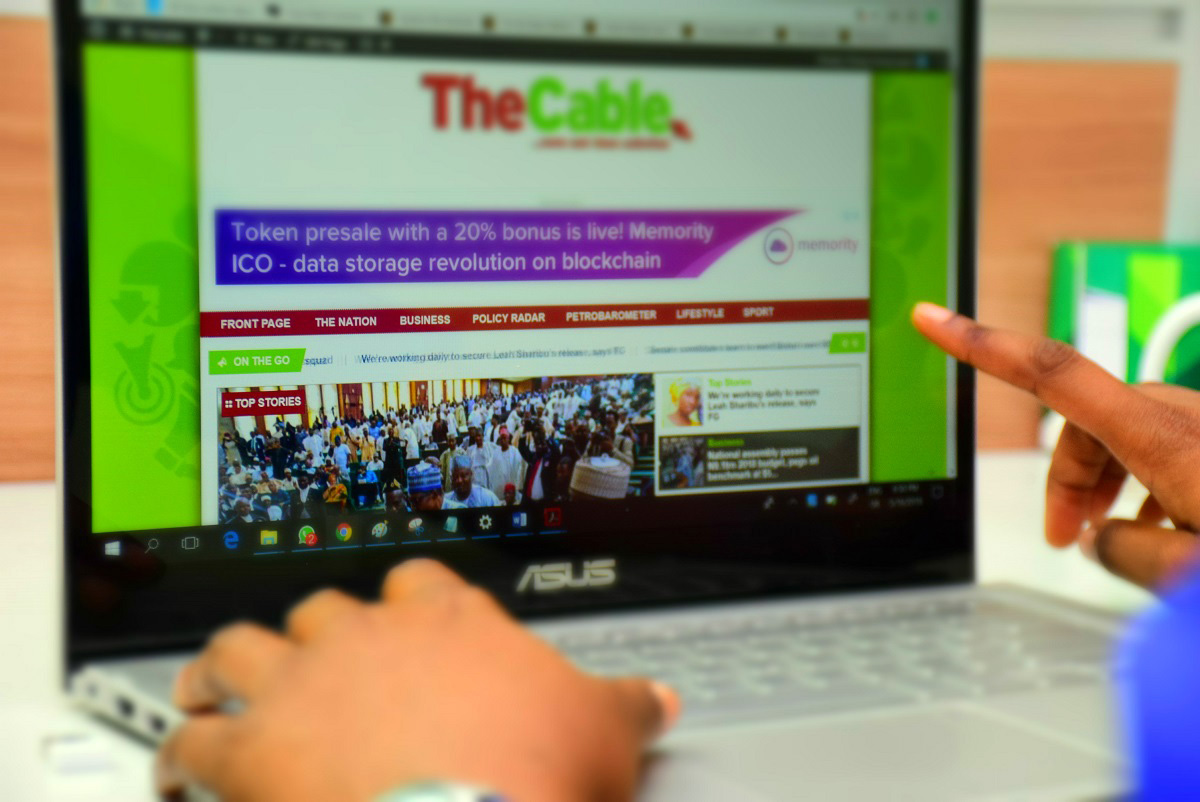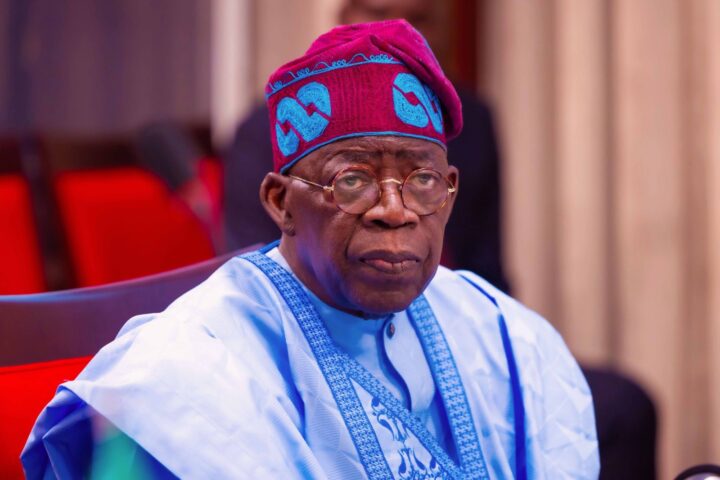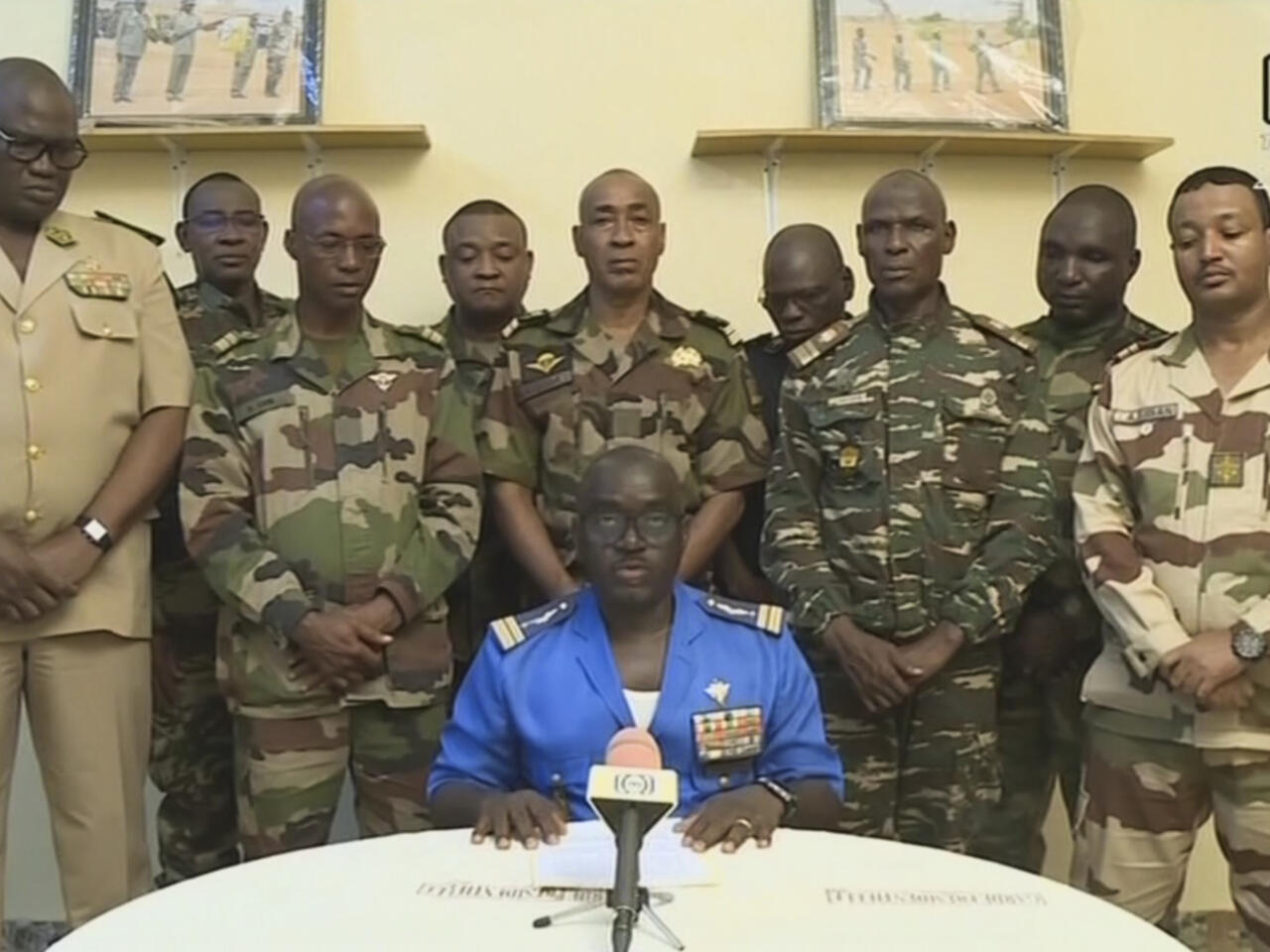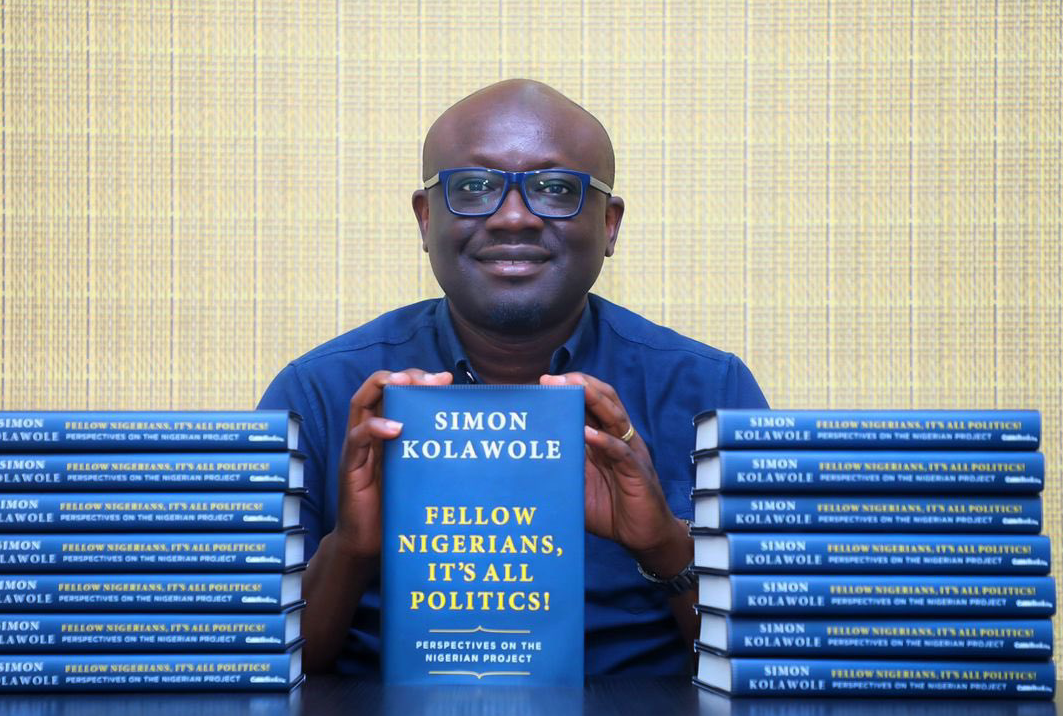The late Diaso Vwaere
What is the value of a human life in our dearly beloved Nigeria? I don’t know. But the death of Dr Vwaere Diaso, a medical doctor, at the General Hospital, Odan, Lagos Island, on Tuesday, offers yet another insight into why Nigeria is like this. According to various accounts, she was on the 10th floor of the hospital when food delivery arrived. She went on the elevator to receive her order but never got to the destination. The equipment crashed, leaving her severely injured and bleeding profusely. It reportedly took almost an hour to get her out during which she agonisingly pleaded that she did not want to die. She was eventually rescued but still died, partly because of inadequate emergency care.
The Lagos state government immediately “ordered” “investigation” into the “remote” and “immediate” causes of the tragedy, as is our wont in Nigeria. While we await the outcome, many questions have been troubling me since I heard of the tragedy. This must be the first time I would hear that a lift crashed and crushed the user. I would say that a lot of things happen in Nigeria that when outsiders hear, they find it hard to believe. This elevator death, even though an accident, must rank among the bizarre stories coming out of our country that end up in avoidable deaths. Other bizarre stories are containers falling on cars and people scooping petrol from a broken pipeline.
Another question is how that elevator got into that sorry state. As far back as 2020, the Medical Guild raised the alarm. On January 12, 2020, @MedicalGuild tweeted: “FACT: The doctors quarters at General Hospital Lagos has 10 floors. It has a non-functional elevator and no running water. Doctors who live on the 10th floor including pregnant women climb the stairs multiple times daily.” In a follow-up tweet, they asked: “Are we going to wait till someone died before things are done properly?” They tagged key government officials. It would appear the government acted because, somehow, the elevator started working again along the line. But now, we wish it still did not work!
Was there a budget for the maintenance of the lift? If there was none, why? Who took the decision that the lift should not be repaired? If there was budget, how much was it? How was it spent? What company is in charge of the maintenance? How much was paid? Who certified that the lift had been properly maintained and approved that payment be made? We need a thorough investigation into these issues so that if a case of criminal negligence is established, some people can face the music. Unfortunately, with all the fatal building collapses in this country, how many people, including government officials, have been tried and jailed for manslaughter? And we expect Nigeria to change.
Advertisement
I wonder once again about emergency services. This was a hospital, a government facility at that. It reportedly took ages for Diaso, one of its doctors, to be released from the trap. When she was eventually rescued, she had lost much blood and needed to be transfused. But the bank was empty, according to yet-to-be-refuted reports. I assume that because she was a doctor and worked at the hospital, her colleagues would have made every effort to save her life but there was nothing more they could do in the face of inadequate facilities. Now, imagine what ordinary Nigerians go through when they are taken to public hospitals on emergency cases. There are too many gory stories.
The instant reaction of the Nigerian Medical Association (NMA) to Diaso’s death was to declare an indefinite strike in government hospitals on Lagos Island. It goes without saying that it is ordinary patients that will suffer the consequences. This again speaks to the value we place on human life in Nigeria. The problems of the healthcare sector in Nigeria are well documented and we need to adopt a new approach, outside of strikes, in trying to find a lasting solution so that we do not end up losing more lives in an attempt by doctors to make a point. I am told that “aluta” is the only language the government understands, but how many governors or commissioners have died because of strikes?
On Friday, Senate President Godswill Akpabio narrated the sorrowful story of how he lost his grandchild in 2019. The 32-year-old man, who was actually his nephew but regarded as his grandchild by custom, died because of apparent medical negligence. “My first grandchild died through bleeding in 2019 in a federal medical centre. He was receiving drip and it tissued in the night — there was no help,” he said. “No doctor, no nurse. He bled until he lost 60 percent of his blood and almost going mental… he struggled and fell on the floor. He was looking for water to drink. He rolled on the floor outside and entered the early morning dew. By that time, he had gone into a coma.”
Advertisement
Akpabio said the doctor that was on duty that night had an emergency in his private clinic and abandoned the medical centre “to attend to private patients in his private clinic”. Akpabio struggled to help revive his nephew but it was a lost case. He explained that he asked for the defibrillator but it did not work. They told him the defibrillator “stopped working eight years ago”. That was a federal medical centre, next in hierarchy to the federal teaching hospitals. “I used my hand and struggled with my personal physician, but I could not revive him. I had to close my eyes and put him in the mortuary,” Akpabio said. That, by the way, is the story of the state of healthcare in most of Nigeria.
These are the heartbreaking stories that we hear every day. As Akpabio himself said, “Every other person has been a victim of medical neglect.” There is hardly any Nigerian that does not have an unpleasant story to narrate on the state of healthcare in Nigeria. I lost my sister in questionable circumstances in September 2015 and I cried every single day for five years. Life lost meaning to me. For months, I did not wish to see the next day. The more I am told the story of her last days in the hospital, the more I am convinced she died of medical negligence. I was outside the country then and did all I could to get her good care, but the doctors and nurses were less than caring.
We are dealing with matters of life and death that we need to address holistically. While the wealthy can afford to pay millions in private hospitals home and abroad, the poor are left with no option than to be at the mercy of public hospitals. In emergencies, most private hospitals will demand deposits that poor patients cannot afford, while many public hospitals will do everything to treat the patients as nuisance and make sure they are given as little care as possible. A friend of mine who took his child to a government hospital was told there was no bed space, but by the time he bribed his way through, most of the beds in the children’s ward were empty! He took pictures and sent to me.
Health is on the concurrent list, which makes it the responsibility of the federal government and states. If Nigeria is a country where we learn lessons, the tragic death of Dr Diaso provides us with a golden opportunity to look deeply into revamping the health sector. There are so many bits and pieces that should ginger government to say “never again”. It starts with the lift, but that is just a metaphor for the quality of infrastructure at the public hospitals — primary healthcare centres, general hospitals and teaching hospitals. The beds, mattresses, mosquito nets, windows, doors, toilets, bathrooms, seats and other features are unsightly in an overwhelming number of hospitals.
Advertisement
That Diaso could not get help until almost one hour also talks directly to the quality of emergency services in Nigeria. Many Nigerians die needlessly in situations where prompt attention could have saved their lives. People die from strokes, heart attacks and cardiac arrests when, in reality, they might have been saved if our emergency services were up to scratch. Things are so bad in Nigeria that it can be taken for granted that you would die if you suffered a heart attack. The rich might even survive because they can be quickly transported to their personal physicians, but there is no chance for the poor who might not even be attended to if they manage to make it to the nearest hospital.
In addition to providing proper first-class equipment for hospitals, we also have to look at the welfare system for medical personnel. Doctors are not only overworked but they are also not well remunerated, even though I accept that conditions have slightly improved in recent years. But in a society that values human life, no incentive is too much to provide to doctors. The workload is too heavy for many doctors. They often suffer burnout. Some die suddenly. Doctors are humans like the rest of us and they too deserve all the comfort and encouragement to keep giving their best. However, there must also be consequences for those guilty of medical negligence as well.
While I pray that Diaso’s family and friends will receive divine comfort in these sad times, my hope is that her death would not be in vain. I hope it will inspire a coordinated, holistic reform of the health sector, not just in Lagos but across the country. We have to be deliberate about it. We need to improve and expand infrastructure. We need to focus on setting up effective and efficient emergency services. We need to provide quality care not just for the wealthy but also to the poor and the poorest of the poor. We need to improve the welfare of medical personnel. Doctors must find other ways of making their point other than strikes. And there must be consequences for negligence.
AND FOUR OTHER THINGS…
MINISTERIAL MESS II
Advertisement
Days after the constitutionally stipulated deadline for the submission of ministerial list lapsed, President Bola Ahmed Tinubu sent the second batch to the senate. Even neutrals were disappointed. It was a list of ex-governors, including ones with questionable records. Theatrically, a ministerial nominee arrived at the national assembly for screening only to be told her name had been dropped. The senate has so far avoided tough questioning; Senate President Godswill Akpabio said that is the job of security agencies. Some things can be complex in life, such as building a rocket, but if ministerial nominations can be this messy, I’m afraid we’re not taking ourselves seriously. Annoying.
BY FIRE BY FORCE
Advertisement
Who advised ECOWAS to threaten the military junta in the Republic of Niger with force? That is a direct affront on the sovereignty of a country and we may be starting a war whose ramifications we cannot predict. The junta apparently has the support of Russia as Africa has once again become the playground for the renewed Cold War. The Nigerian military is stretched fighting insurgency and banditry on different fronts at home. Opening a new war front is the last we need now. With Mali, Guinea and Burkina Faso also under military rule, ECOWAS is already divided. We probably want to protect ourselves from Russian influence in Africa, but we must proceed with caution. Complicated.
GSK’S BITTERSWEET EXIT
Advertisement
GlaxoSmithKline (GSK) Consumer Nigeria Plc is ceasing operations after recording a string of losses amid serious business challenges. The producers of Augmentin, Panadol, Sensodyne, and Ventolin, etc, are finding it harder by the day to compete with Indian and Chinese pharmaceuticals in the Nigerian market. Many Nigerians were happy at GSK’s exit announcement because they see it as a good political weapon against the Tinubu administration, even though it is not only a Nigerian problem as GSK has been scaling down operations in Africa generally. My joy would be for Nigerian pharmaceutical companies to benefit from GSK’s exit by getting patent waivers. Opportunity.
AND FINALLY…
Advertisement
Since Dr Bosun Tijani, the CEO and co-founder of CcHub, was nominated for a ministerial position by President Tinubu, his old tweets have been dug up by Nigerians in what I suppose is meant to suggest that he would be a hypocrite to accept the job. The historical tweets were not just critical of Tinubu and President Muhammadu Buhari but the language could have been much better. Truth is, many people easily get carried away on Twitter because of clout-chasing. As you get older, you realise you could have made your point in a more cultured way. But the fastest way to gain Twitter followership is using vile language and personal insults. It always does wonders. Exuberance.
Add a comment







